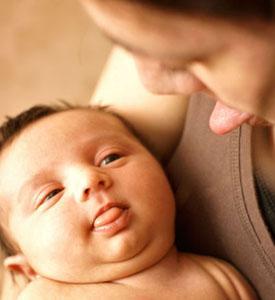This course addresses essential learning outcomes in normal growth, development and nutrition across the lifespan, inclusive of aging. Its focus is on normal function rather than disease, and is intended to achieve the following primary objectives.
Sequence Director:
Brent Williams, M.D., M.P.H.
dScribe: Joanna Lins
Related Courses: this sequence is taught in conjunction with M1 - Embryology
Syllabus
Overview
This course addresses essential learning outcomes in normal growth, development and nutrition across the lifespan, inclusive of aging. Its focus is on normal function rather than disease, and is intended to achieve the following primary objectives.
Objectives
- Understand normal growth and development across the lifespan
- apply this knowledge in the approach to the patient
- Demonstrate knowledge of ways to optimize function for independent living
- nutrition
- exercise
- medications
- Recognize and appreciate parallels at opposite ends of the life span with respect to:
- physiology; impaired homeostasis and limitations in functional reserve
- functional assessment
- vulnerable populations; role of psychosocial support / caregivers
- team care
These objectives will be met through content provided in lecture format, in age-specific small group sessions, a nutrition self-assessment exercise, and in a multidisciplinary case conference. The class will be divided into four for the small group sessions.
The Specific Objectives for the age-specific small group sessions are to:
- characterize normal growth & development ( e.g. body composition changes)
- discover implications for approach to the patient history and physical
- present age-specific nutrition assessment: Anthropometry, Biochemical, Clinical, Dietary intake, Energy expenditure
- focus on primary prevention
The following sections list the course expectations and the overall lifespan-perspective themes that are related to these objectives. In addition to gaining an appreciation for these themes through the content that will be presented during this course, we also wish to focus on normal. Unlike the disease-related orientation of almost all of the balance of the medical school curriculum, the overall objective of this course is to understand what is necessary with respect to normal growth and development to maximize function for independent living across the lifespan.
Course Expectations
Required Textbook
None.
Required Reading
None.
Web Site
The information included in the course syllabus will also be available on M1 2008-2009 Ctools site. Almost all of the lecture material is accessible there in the PowerPoint presentations that will be used in the lectures. Due to their nature, most of the information about the case-based discussions that will occur in the small group sessions is not on the web site.
Attendance
Attendance is mandatory at the introductory lecture, each of the four small group sessions, the Nutrition small group session, and at the multidisciplinary conference. Students will be required to sign an attendance form at these sessions to document their attendance at these sessions. Students are also required to complete and turn in a Nutrition Self-Assessment assignment.
Evaluation
A passing grade for this course will be achieved through:
- The Human Growth & Development and Embyrology/Pharmacology portions of Growth & Development will be assessed separately. You must pass both components of the course to receive a passing grade for Growth & Development.
- Information on Embryology/Pharmacology grading requirements are detailed in the Embryology coursepack.
- Attendance at the mandatory sessions (outlined above) with no unexcused absences.
- Completion of a Nutrition Self Assessment assignment.
- Satisfactory performance (75% or above) on a final (multiple choice and short answer) examination that will be given at the completion of the course.
Common Lifespan Themes
Objective: Focus On Primary Prevention; Maximize Function For Independent Living
- exercise
- nutrition
- medications
Growth
- normal stages/ standards
- body composition
- assessment
- age changes
- obesity
- exercise
- puberty/menopause
Development
- Functional assessment
- Denver Developmental Screening Test / Activities of Daily Living
Nutrition
- assessment
- requirements
- preventive
- deviations in body weight
- obesity
- failure to thrive
Impaired Homeostasis (decreased functional reserves)
- immune function/ infection
- temperature regulation
- failure to thrive
- bed rest - iatrogenic complications
Gender Differences
- longevity
- puberty
Role Of Social Support
- decision making
- caregivers
Learning Objectives
Common Lifespan Themes
Objective: Focus On Primary Prevention; Maximize Function For Independent Living
- exercise
- nutrition
- medications
Growth
- normal stages/ standards
- body composition
- assessment
- age changes
- obesity
- exercise
- puberty/menopause
Development
- Functional assessment
- Denver Developmental Screening Test / Activities of Daily Living
Nutrition
- assessment
- requirements
- preventive
- deviations in body weight
- obesity
- failure to thrive
Impaired Homeostasis (decreased functional reserves)
- immune function/ infection
- temperature regulation
- failure to thrive
- bed rest - iatrogenic complications
Gender Differences
- longevity
- puberty
Role Of Social Support
- decision making
- caregivers
Learning Objectives
This course addresses essential learning outcomes in normal growth, development and nutrition across the lifespan, inclusive of aging. Its focus is on normal function rather than disease, and is intended to achieve the following primary objectives.
- Understand normal growth and development across the lifespan
- apply this knowledge in the approach to the patient
- Demonstrate knowledge of ways to optimize function for independent living
- nutrition
- exercise
- medications
- Recognize and appreciate parallels at opposite ends of the life span with respect to:
- physiology; impaired homeostasis and limitations in functional reserve
- functional assessment
- vulnerable populations; role of psychosocial support / caregivers
- team care
These objectives will be met through content provided in lecture format, in age-specific small group sessions, a nutrition self-assessment exercise, and in a multidisciplinary case conference. The class will be divided into four for the small group sessions.
The Specific Objectives for the age-specific small group sessions are to:
- characterize normal growth & development ( e.g. body composition changes)
- discover implications for approach to the patient history and physical
- present age-specific nutrition assessment: Anthropometry, Biochemical, Clinical, Dietary intake, Energy expenditure
- focus on primary prevention
Jump to:
| Document Title | Creator | Downloads | License |
|---|---|---|---|
|
05.11.09(a) Lecture Handout: Principles of Normal Growth and Development |
Brent Williams
|
||
|
05.11.09(b-1) Lecture Handout: Fetal and Neonatal Development |
Heather Burrows
|
||
|
05.11.09(b-2) Lecture Handout: Fetal and Neonatal Small Group Session |
Heather Burrows
|
||
|
05.11.09(b-3) Lecture Handout: Fetal and Neonatal Short Answer Test |
Heather Burrows
|
||
|
05.11.09(c-1) Lecture Handout: School Age Development |
Julie Lumeng
|
||
|
05.11.09(c-2) Lecture Handout: School Age Development Small Group Session |
Julie Lumeng
|
||
|
05.12.09(b) Lecture Handout: Energy Metabolism |
Mark D. Peterson
|
||
|
05.18.09 Lecture Handout: Physiology of Aging |
Brent Williams
|
| Document Title | Creator | Downloads | License |
|---|---|---|---|
|
05.11.09(a): Principles of Normal Growth and Development |
Brent Williams
|
||
|
05.11.09(b): Fetal and Neonatal Development |
Heather Burrows
|
||
|
05.11.09(c): School Age Development |
Julie Lumeng
|
||
|
05.12.09(a): Energy Balance and Obesity |
Heidi IglayReger
|
||
|
05.12.09(b): Energy Balance and Obesity |
Mark D. Peterson
|
||
|
05.18.09: Physiology of Aging |
Brent Williams
|
| Document Title | Creator | Downloads | License |
|---|---|---|---|
|
2007 Daily Schedule: M1 Human Growth and Development |
Dept. Staff
|
||
|
2008 Daily Schedule: M1 Human Growth and Development |
Dept. Staff
|
||
|
2009 Daily Schedule: M1 Human Growth and Development |
Dept. Staff
|
||
|
2010 Daily Schedule: M1 Human Growth and Development |
Dept. Staff
|
| Document Title | Creator | Downloads | License |
|---|---|---|---|
|
05.24.10(a): Introduction to Human Growth and Development |
Schuyler Halverson
|
||
|
05.24.10(b): School Age Development |
Schuyler Halverson
|
||
|
05.24.10(c): Perinatal Neonatal Development |
Schuyler Halverson
|
||
|
05.25.10(a): Adolescence |
Schuyler Halverson
|
||
|
05.25.10(b): Biology of Aging |
Schuyler Halverson
|
||
|
05.26.10(a): Age-Related Factors in Drug Therapy |
Schuyler Halverson
|
||
|
05.26.10(b): Physiology of Aging |
Schuyler Halverson
|
||
|
05.26.10(c): Energy Metabolism |
Schuyler Halverson
|




